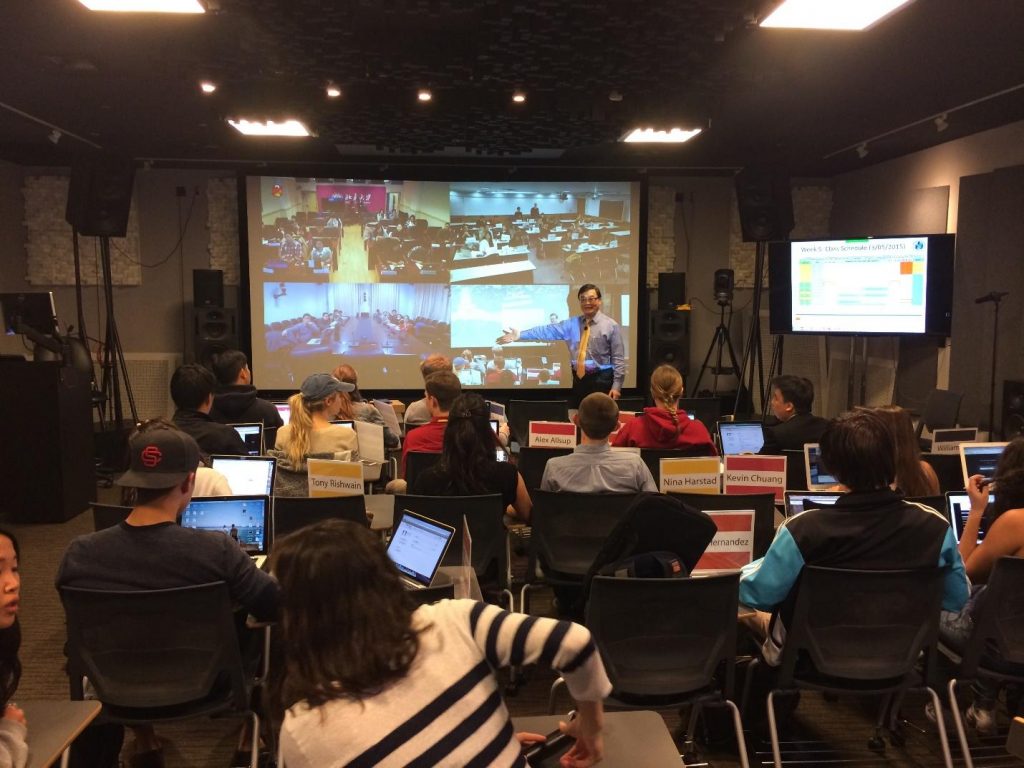iPodia, whose vision is “learning together for a better world,” is an education innovation that originated at the Viterbi School of Engineering at the University of Southern California in 2009. USC launched the iPodia Alliance in 2012 as a not-for-profit university consortium that uses the iPodia model to promote “classrooms-without-borders” among institutions and provide “glocal education” (i.e., global learning on local campus) for students. To date, the iPodia Alliance has 17 university members on four different continents, enabling students around the world to learn directly with global classmates as local peers across physical, institutional, and cultural boundaries.
Focusing on “togetherness” in education, iPodia opens a new frontier of technology-enhanced learning. Different from MOOCs, which digitize courseware to replace classroom lectures, iPodia promotes borderless peer-learning to reinvent campus education. While many universities are building overseas campuses across the border, iPodia is creating virtual classrooms without the border.
 Students interact with global peers from different campuses in iPodia classroom
Students interact with global peers from different campuses in iPodia classroom
Moving beyond the traditional e-learning approach, iPodia delivers the power of “iLearning” by synergizing an interconnected platform, an inverted pedagogy, and an inclusive program.
- Interconnected Platform – iPodia uses the Internet to connect physical classrooms on separate campuses to establish an integrated “cyber-physical” learning platform for students to study together directly with remote classmates as local peers on home campuses.
- Inverted Pedagogy – iPodia extends the inverted (or flipped) classroom approach to support a new interactive peer-learning pedagogy, in which students’ pre-class feedback of content studies is used to organize cohorts and provide contexts for peer interactions.
- Inclusive Program – iPodia includes multiple institutions with complementary instructional resources and diverse student populations in its education program, and jointly develop and offer courses that explore learner diversities as learning resources.
In short, the hallmark of the iPodia education model is its unique focus on “togetherness in borderless peer-learning.” Its platform uses the Internet to connect remote classrooms to eliminate the distance of peer interactions. Its pedagogy exploits student feedback from inverted learning to provide the context for peer interactions. Its program offers joint courses that include diverse students to enrich the experience of peer interactions.